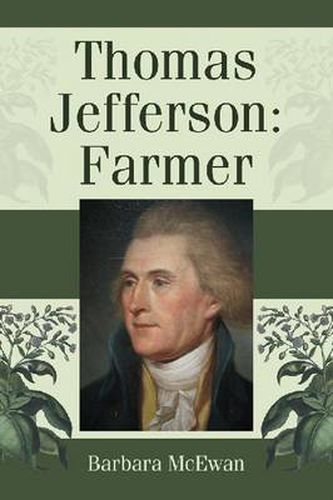Readings Newsletter
Become a Readings Member to make your shopping experience even easier.
Sign in or sign up for free!
You’re not far away from qualifying for FREE standard shipping within Australia
You’ve qualified for FREE standard shipping within Australia
The cart is loading…






This title is printed to order. This book may have been self-published. If so, we cannot guarantee the quality of the content. In the main most books will have gone through the editing process however some may not. We therefore suggest that you be aware of this before ordering this book. If in doubt check either the author or publisher’s details as we are unable to accept any returns unless they are faulty. Please contact us if you have any questions.
Thomas Jefferson is best known as one of the founders of the United States. His chief love, however, was not politics, but farming. His writings abound with expressions of loathing for the former and perpetual fascination for the latter.
Cultivators of the earth are the most valuable citizens,
he wrote to John Jay in 1785. While his contributions to the field of government overshadow his many other accomplishments, he also made many brilliant and expert contributions to the development of sustainable, regenerative methods of farming. The 11 chapters address a variety of issues that shaped Jefferson’s farming including his methods, crops, alternative crops he promoted, farm machinery, his workers (overseer, slaves, and free workmen). Monticello, landscaping practices, and his plans for a school of botany at the University of Virginia. This book also brings to the fore the human qualities of the man in relation to both his family and his country and shows that his aspirations for both were habitually put before his own. Here is yet another way to understand that without Thomas Jefferson, America would have become a different nation.
$9.00 standard shipping within Australia
FREE standard shipping within Australia for orders over $100.00
Express & International shipping calculated at checkout
This title is printed to order. This book may have been self-published. If so, we cannot guarantee the quality of the content. In the main most books will have gone through the editing process however some may not. We therefore suggest that you be aware of this before ordering this book. If in doubt check either the author or publisher’s details as we are unable to accept any returns unless they are faulty. Please contact us if you have any questions.
Thomas Jefferson is best known as one of the founders of the United States. His chief love, however, was not politics, but farming. His writings abound with expressions of loathing for the former and perpetual fascination for the latter.
Cultivators of the earth are the most valuable citizens,
he wrote to John Jay in 1785. While his contributions to the field of government overshadow his many other accomplishments, he also made many brilliant and expert contributions to the development of sustainable, regenerative methods of farming. The 11 chapters address a variety of issues that shaped Jefferson’s farming including his methods, crops, alternative crops he promoted, farm machinery, his workers (overseer, slaves, and free workmen). Monticello, landscaping practices, and his plans for a school of botany at the University of Virginia. This book also brings to the fore the human qualities of the man in relation to both his family and his country and shows that his aspirations for both were habitually put before his own. Here is yet another way to understand that without Thomas Jefferson, America would have become a different nation.